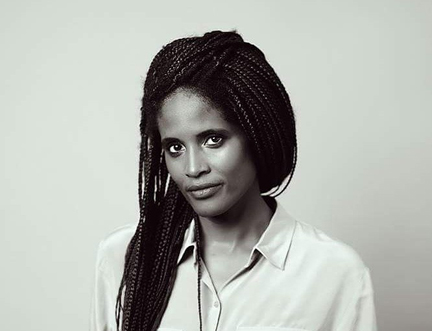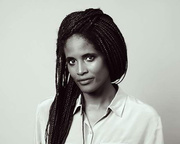Freedom is a Collective Conscience Project
By Djamila Ribeiro

In 2018, we commissioned 51 authors from 25 countries to write essays exploring ideas about freedom for The Freedom Papers, a publication produced in partnership with Gutter Magazine. Read on for Djamila Ribeiro's essay, and visit guttermag.co.uk to purchase a copy of The Freedom Papers.
As I studied Philosophy, I understand that freedom is a different concept depending on your perspective. When they ask me: ‘What is freedom?’ I always answer: it depends on who you ask. I really enjoy Sartre’s comment that we are condemned to freedom, although I disagree with an ontological freedom of the human being. I think, like Simone de Beauvoir, that we must plead for freedom, but we cannot ignore the structures of oppression that confine us and create social hierarchy.
Audre Lorde also inspires me to think about freedom and how it is only possible to be free when you have the courage to break the silence. I really like that definition. For us, black women, who have been silenced historically, to speak is to be free, to break barriers and masks of silence, as Grada Kilomba says. It means that, sometimes, we must let go of those who want our silence, as Alice Walker has said, one ‘cannot be your friend who demands your silence’.
Audre Lorde also said: ‘I am not free while any woman is unfree, even when her shackles are very different from my own.’
So, thinking about freedom also means thinking about political solidarity, about how we can create political networks and support for the real emancipation of oppressed groups. The individual dimension is directly linked to the collective dimension. Looking beyond ourselves becomes essential for a project of freedom. However, even when a woman, for example, feels free and has concrete possibilities and opportunities for emancipation, she will still have to face institutional and structural barriers. A project of real freedom must be linked to a new civilizing milestone.
Nina Simone once said, ‘Freedom is not being afraid.’ I consider this a beautiful definition if it is understood as facing fear and not letting it paralyze us. I think it is humanly impossible not to be afraid at all. I think Nina wanted to incite us to face walls and impositions. All these women, when they broke the mask of silence, helped me and others dream about freedom.
In order to start this project, we must be aware of the moorings. We can only be free if we know what has prevented us from being so. In this sense, the harnessing of mentality, political action and empowerment are important tools for the awakening of consciousness to think transcendentally. Many people even know they are slaves to an oppressive system. It is up to those who dream and struggle to be prepared to think about these tools and to understand again the collective dimension.
Copyright © 2018, Djamila Ribeiro. All rights reserved.
Supported by the Scottish Government’s Edinburgh Festivals Expo Fund through Creative Scotland.


 Major new partnership with Celtic Connections
Major new partnership with Celtic Connections 

